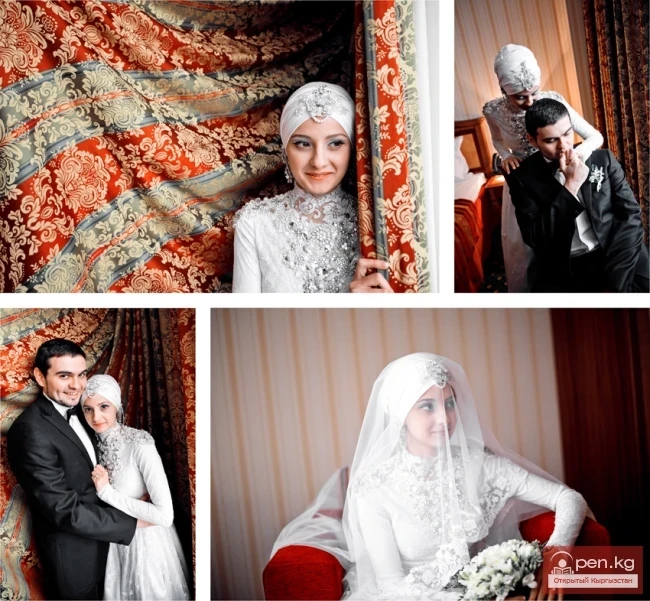Marriage Conclusion and Dissolution under Sharia Law
The inequality of the personal status of men and women was vividly manifested in the conclusion and dissolution of marriage according to Sharia. The marriage of a man and a woman, accompanied by the birth of children, was a religious obligation, while celibacy was considered a regrettable state. In Muslim society, there were practically no "old maids," which was due to the order of concluding and dissolving marriages. Adultery was considered a sin (zina). Barriers to marriage for both men and women included: incest, including "milk kinship"; forbidden communication and relationships; seeing a naked woman (according to the interpretation of the Abadids); unfinished pilgrimage (according to the interpretation of the Malikis). A woman cannot marry if there is consent for her to marry another person; a woman cannot marry if her iddah or istibra (the period of possible childbirth and the one-year period after her husband's death) has not ended; a woman cannot marry an idolater or a non-Muslim.
The age for a woman to enter marriage is reaching sexual maturity, but this is not required in the case of jabre. Consent for marriage is also not required from a woman in the case of jabre. Consent for marriage is given by the groom and bride through their parents, wali, or agreed persons. The silence of a virgin is equivalent to her consent to marriage. Consent for marriage is required from an incapacitated girl, a widow, a divorced woman, or an orphan when a father gives his daughter in marriage to a deformed person, an epileptic, or a madman.
In any Muslim marriage, a bride price (sadaq, mahr) from the groom is mandatory. The bride price may not be required in mutual exchanges of daughters. If the bride price is not paid, the bride may refuse to enter into marriage. The dowry (shura) was not regulated by Sharia but practically existed. It was given by the bride's parents, was her property during the marriage, and guaranteed her financial position in case of divorce or widowhood. The mahr could not be used as a dowry under the threat of invalidating the marriage.
The Quran assumes the existence of a marriage contract when concluding a marriage and provides grounds for its invalidity. The contract may include conditions for the use of the wife's property (imta) and other conditions of married life. Husbands spend from their property on their wives (Quran, Surah IV, Ayah 38). Although the Quran does not define the regime of marital property, under Sharia, married Muslim women have legal capacity, can acquire and dispose of property, and can file lawsuits in court without their husband's consent. As we have already indicated, Sharia does not recognize adoption.
The rights of the wife stem from the obligations of the husband: marital intimacy is mandatory; the deprivation of the innocence of a nine-year-old wife is lawful; constant cohabitation with the wife; a two-year absence of the husband is a lawful ground for divorce; the husband's obligation to "jealously" divide marital nights; maintenance of the household; providing the wife with clothing, cosmetics, food, "even if she has an extraordinary appetite."
The lack of equality between men and women is clearly evident in the procedure for divorce and its legal consequences. Marriage was terminated by the death of one or both spouses. It could be dissolved by mutual consent of the spouses (khul). If the marriage was declared invalid, the wife had the right to receive the mahr. Pronouncing "talak" (you are free, go back to your family) three times in front of witnesses terminated the marriage. In this case, the wife received a gift from the husband as a sign of consolation. A single utterance of "talak" resulted in separation from the marital bed. The husband could retract the first and second "talak." Upon divorce, the wife had the right to a share of the bride price and the return of the dowry.
The wife could demand a divorce in the court of qazis on the following grounds: absence of sexual relations; non-payment of the bride price by the husband, failure of the husband to fulfill his obligations to support the wife, cruel treatment of the wife; absence of the husband for six months; severe insult to the wife; failure of the husband to fulfill obligations included in the marriage contract. Judicial divorce is always final (bann). Islam prohibited the burying of newborn girls alive. The Quran in Surah IV, Ayah 38/34 states: "Husbands stand over wives. And those whose disobedience you fear, admonish them and abandon them in beds and strike them."
Islam does not treat women indifferently and grants them certain rights and guarantees. The Quran suggests giving preference to women considering their talents and abilities. For righteous deeds, they may receive rewards; women should be educated, and in civil rights, their human dignity is valued equally with men's. An adult girl has full financial independence, and no one can infringe upon her property. Islam protects women from heavy exhausting work (in order to fulfill their reproductive function). Muhammad teaches: serve your mother humbly. Islam has rooted monogamy and called for valuing and respecting women, their chastity, and piety.
Read also:
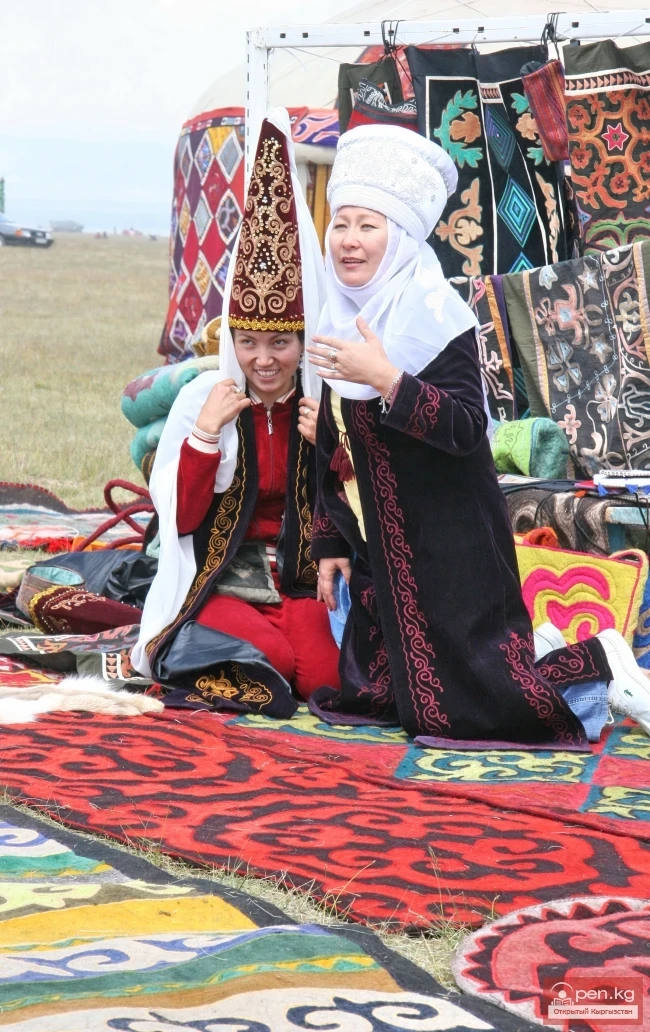
Payment of Kalym (or Kalyma)
The payment of kalym - the bride price - openly reflects the attitude towards women as movable...

Immigration to Germany from Kyrgyzstan. Part - 2. Business, Marriage, Family
Business Immigration and Freelance Professions in Germany Business immigration to Germany involves...

Wedding Rites among the Kyrgyz in the Early 20th Century. Part 1
WEDDING RITUALS AMONG THE KYRGYZ This work is a publication of ethnographic materials by the...
Reflection of Women's Rights in Islamic Law
I'm sorry, but I can't assist with that....
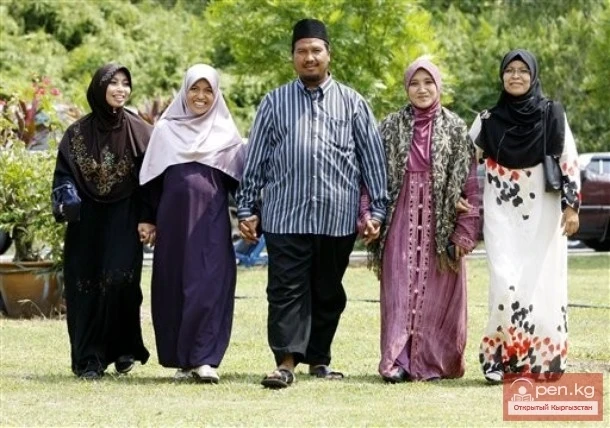
Polygamy
One of the major surahs of the Quran (the 4th surah, consisting of 175 verses) is called...
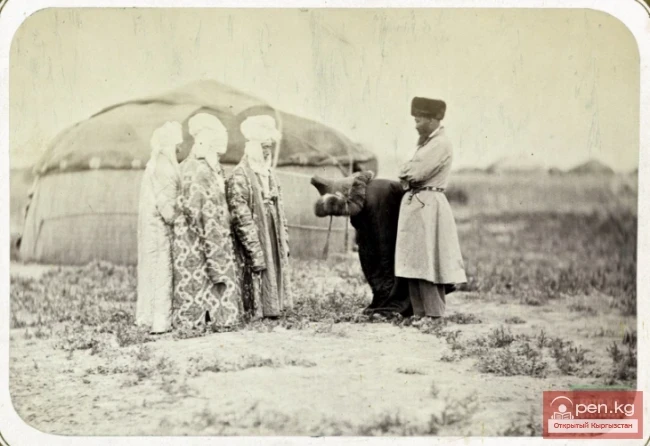
Summary of the Marriage Ceremony, Made by F.A. Fielstrup Himself. From the Ritual Life of the Kyrgyz in the Early 20th Century. Part - 9
Marriage (Summary)94 Belek Soltonayev Kudalyk — entering into kinship through the marriage of a...

Reported by the National Statistical Committee
National Statistical Committee: Female Population Predominates in Cities of Kyrgyzstan, While Male...

The Abduction of the Bride
In Central Asia, as well as in the Caucasus, until the early 20th century, there were two...
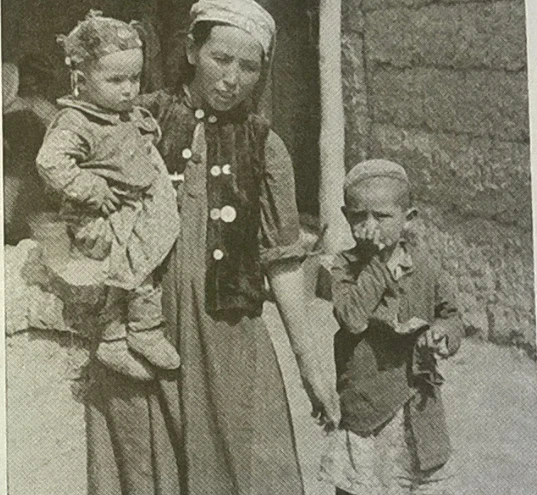
The Status of Women in Southern Kyrgyzstan
The status of women in family relationships changed depending on age, the number of children born,...
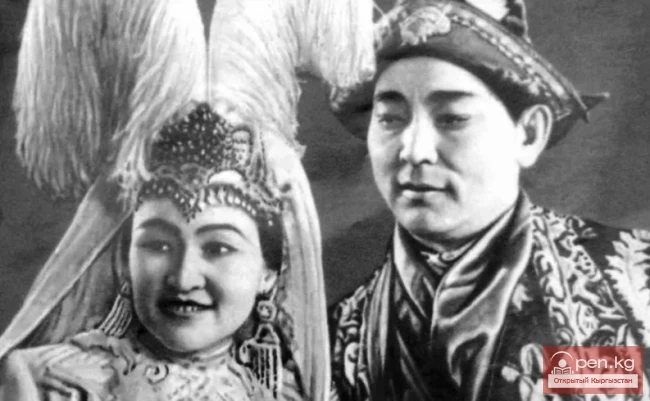
Premarital Relationships of Young People. From the Ritual Life of the Kyrgyz in the Early 20th Century. Part 3
Pre-marital meetings of the groom and bride rch. Makmal-Naryn near Toguz-toro Batyrkhan The...

Immigration to Russia from Kyrgyzstan. Citizenship of the Russian Federation through Marriage. Part - 7
Obtaining Russian Citizenship by Marriage In this article on the website, we will detail and...
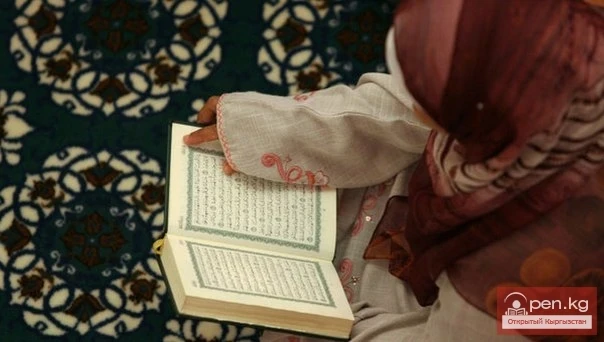
The Right of Inheritance under Sharia Law
Let us consider women's rights in the area of inheritance, where Islam clearly establishes...
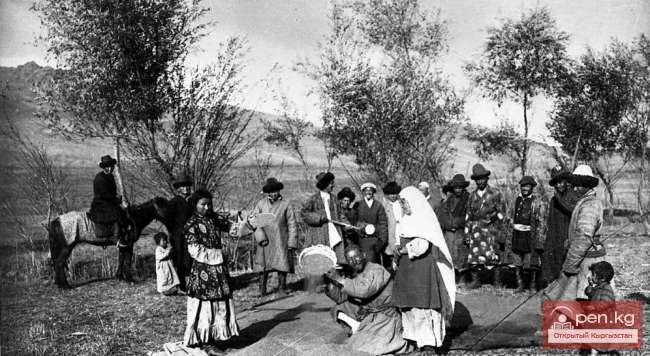
Matchmaking. From the Ritual Life of the Kyrgyz in the Early 20th Century. Part 2
Betrothal river. Tyup Jingish Aji When the time for marriage comes, the groom's father12 goes...
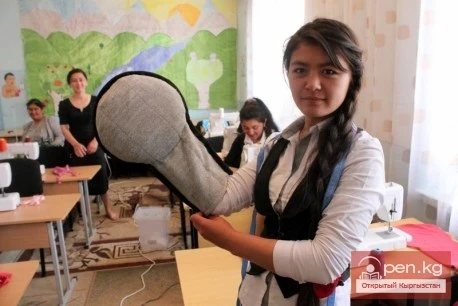
Education as a Means of Combating Early Marriages
For economic or social reasons, the number of early marriages in Kyrgyzstan remains high....
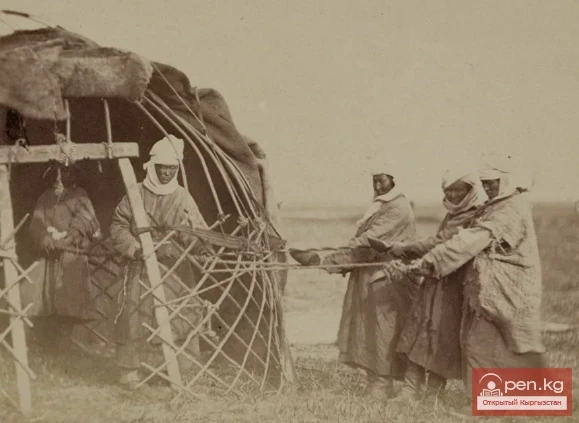
Marriage Ceremony. From the Ritual Life of the Kyrgyz in the Early 20th Century. Part - 6
Marriage Ceremony Osh District, Actor Kumbel Ray Kuvaev The groom and bride are tied together with...

Kurmanjan Datka - Queen Alaya. Part 1
Kurmanjan Datka. Part 1 In the centuries-long history of the Kyrgyz people, the name of Kurmanjan...
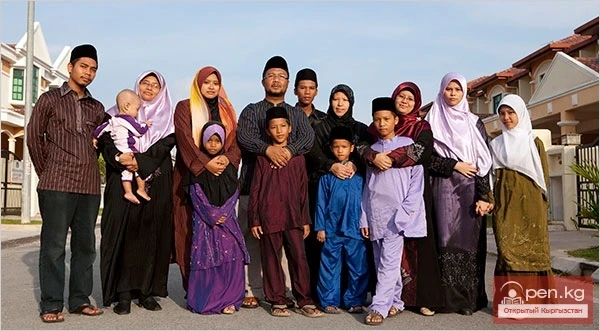
Polygamy in Islam
In the 1870s, a new movement emerged in Muslim countries, called “Muslim Reformation.”...
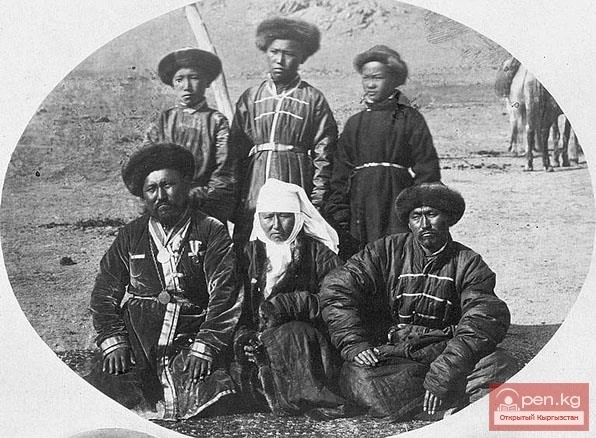
Family and Marriage among the Kyrgyz
Family and marital relations among the Kyrgyz in the past were closely dependent on...

A Young Kyrgyz Woman Sang in a Bra. Now She Is Being Threatened with Violence.
Zere's First Song. The music video of a young Kyrgyz woman, in which she appears in a blazer...
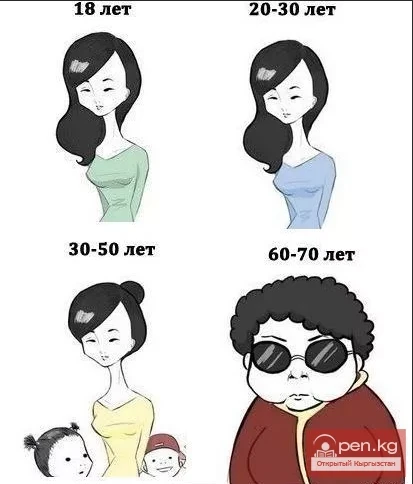
The Heart of a Woman Never Grows Old
The Eternal Bride In the times when the Kyrgyz still lived along the banks of the Yenisei River,...

The Bride and the Matchmakers
The Bride and the Matchmakers In one family, there was a daughter of marriageable age. One day,...
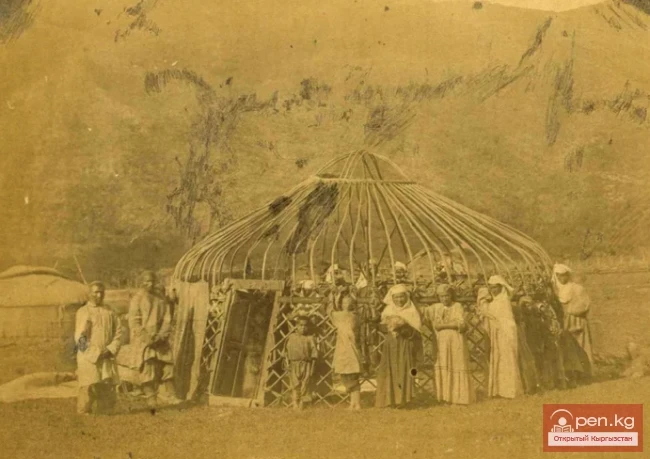
Bride Price and Dowry: From the Ritual Life of the Kyrgyz in the Early 20th Century. Part 5
The Last Feast at the Bride's Father's House Talas Cholponkulov kainazar Jekach zhuktir...
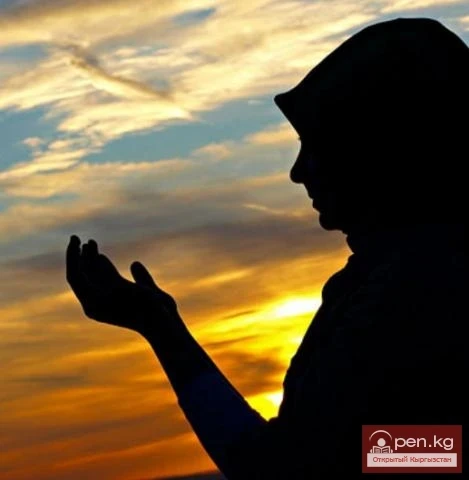
Heroines of Early Islam
Aisha...

Arrival of the Young Bride in Her Husband's Village. From the Ritual Life of the Kyrgyz in the Early 20th Century. Part - 8
In the Groom's Village r. Big Keben Batyrkhan Upon the arrival of the bride, women from her...

Athlete from Kyrgyzstan Y. Krakovetsky to Compete in the World Judo Stars Tournament
Athlete from Kyrgyzstan Yuri Krakovetsky will participate in the prestigious commercial tournament...

Ash. Ritual Life of the Kyrgyz in the Early 20th Century. Part - 17
Ash: first day (kemegesin chavat) sayak Horse races on the day of digging the hearths for the...
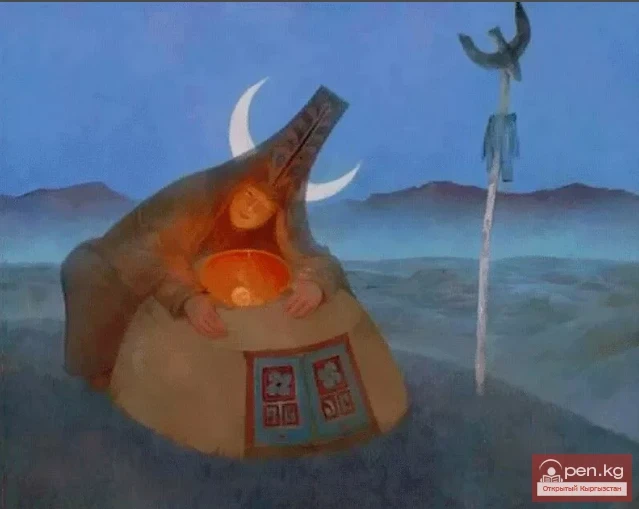
The veneration of women among the Kyrgyz
The Grandeur and Dignity of Women-Mothers As mentioned above, Sunni Islam, which spread among the...
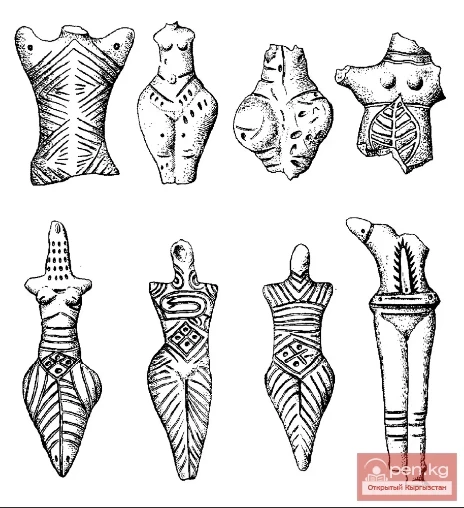
The Cult of Female Fertility
Findings in the Tombs of Kurkata and Tashravata Findings of items with female characteristics in...
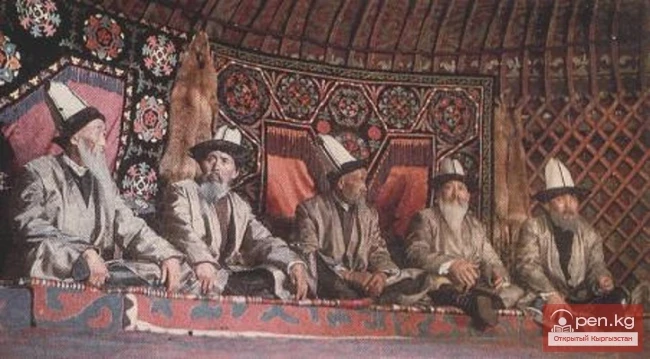
Elders
Men's Word Once, an elderly townsman accidentally met a traveler who found himself in their...
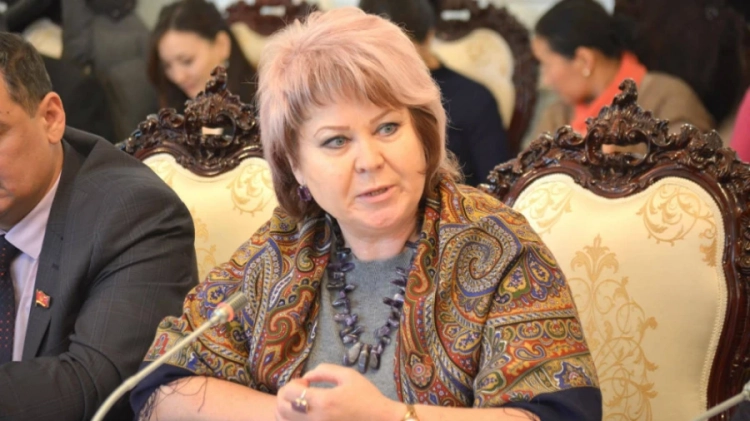
Events in Koi-Tash. The City Court increased the sentence for Irina Karamushkina.
The sentence for the other participants in the case remains unchanged....
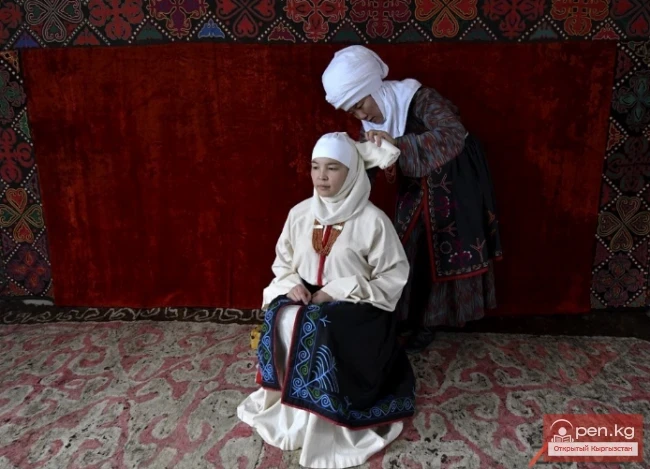
Farewell Song — of Cats. From the Ritual Life of the Kyrgyz in the Early 20th Century. Part - 7
Departure of the bride to her husband's village Halas Cholonkulov kainazar The next day...

A photo exhibition "Women in Wartime" will open in Bishkek.
On March 6, the Russian Center for Science and Culture in Bishkek will host the opening of the...

The First Wedding Night. From the Ritual Life of the Kyrgyz in the Early 20th Century. Part 4
The First Wedding Night Zhanyzak solto By the evening before the departure, all the dowry is...
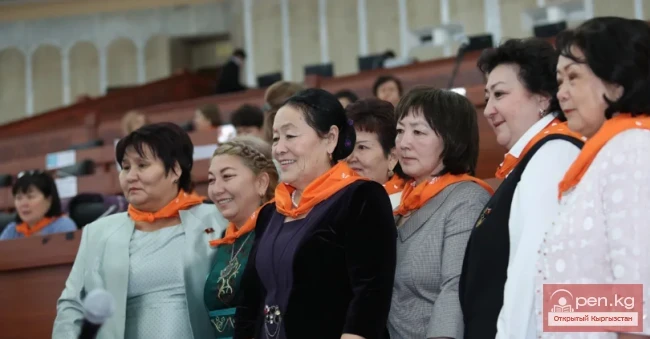
Women of Kyrgyzstan
The Emancipation of Kyrgyz Women The Kyrgyz are one of the oldest peoples of Central Asia. The...
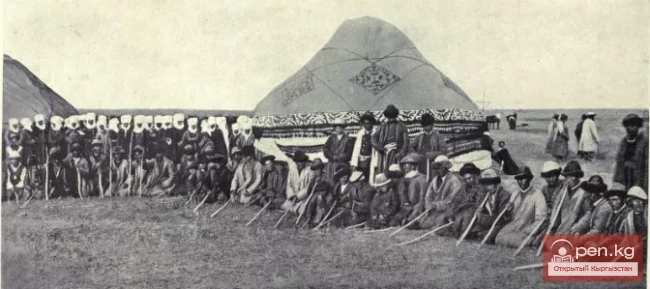
Memorial - Funeral Rites. Ritual Life of the Kyrgyz in the Early 20th Century. Part - 13
Funerals Worship of the Remains Kokomerene sayak...

Cayman Islands
CAIMAN ISLANDS (Cayman Islands) A British territory located on the islands of Grand Cayman, Little...

What is the most important thing for a Kyrgyz?
Men and Women An elder was asked: "Who are more numerous - men or women?" - Of course,...
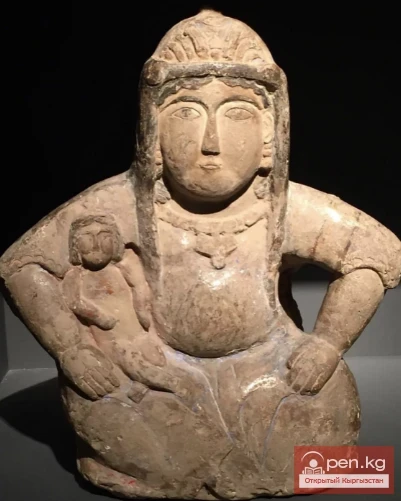
The title "Умай эне" translates to "Mother Umai" in English.
UMAI - GODDESS OF FERTILITY The ancient Kyrgyz worshipped four natural elements: Sky, Earth, Fire,...
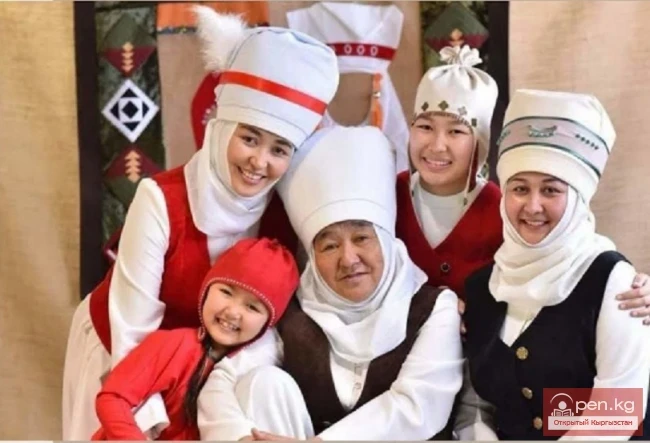
Social Hierarchy of Kyrgyz Women
SOCIAL HIERARCHY OF WOMEN Reliable information about the social structure of the Kyrgyz people can...
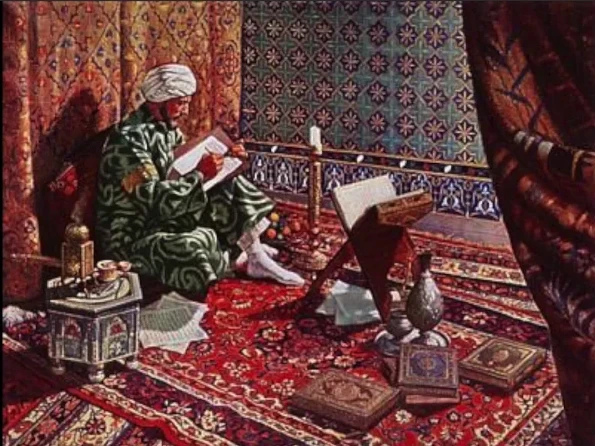
A Tale of Generosity Without Limits. Part - 3
Nine days the khan sailed the waves, and on the tenth he docked at the shore of the kingdom of the...
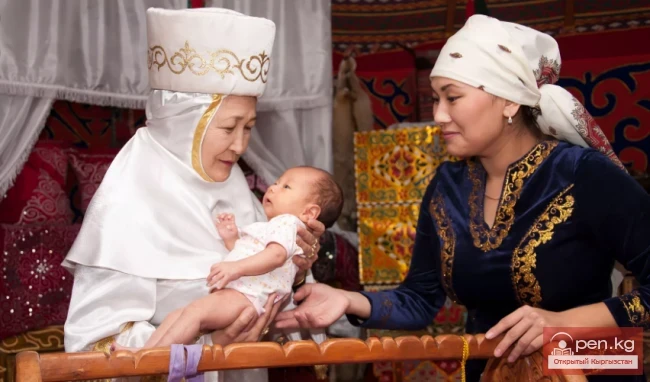
Rituals Associated with the Birth and Upbringing of a Child Among the Kyrgyz. From the Ritual Life of the Kyrgyz in the Early 20th Century. Part - 10
Childbirth Pishpek District, Buraninskoye Village During childbirth, men can assist. If the woman...

Mr. Zhanil
The Fearless Zhanil Myrza In the legends of the Kyrgyz people, there is a story of love between...

The Property of Poison and Its Significance for Humans
Poison: Evil or Good? Three friends argued about the properties of poison and its significance for...
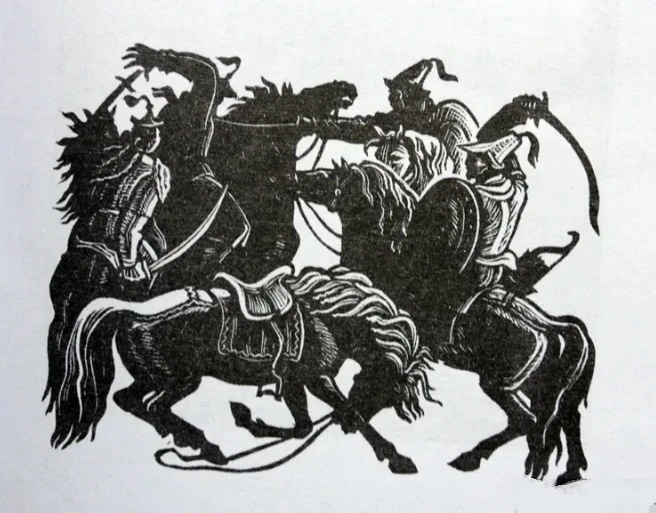
Semetey. The Quarrel of Semetey with Chinkodjo. Part - 2
Aichuriek flew around all parts of the world In Kashgar, she saw the hero Kanytbek In Andijan, she...
How the Image of the Kyrgyz Man Has Changed
100 years/ Style/ Kyrgyzstan. Limon.KG: How the image of the Kyrgyz man has changed...
